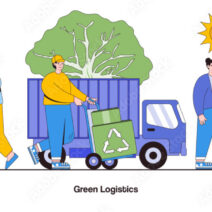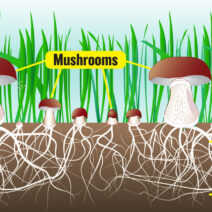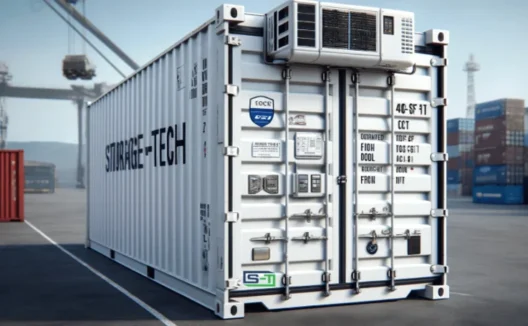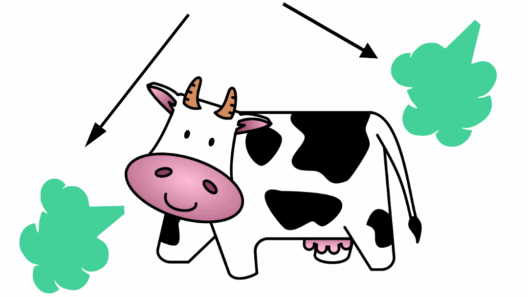Factory farming, a practice characterized by the intensive, large-scale production of livestock and crops, is increasingly scrutinized for its deleterious effects on the environment. This industrialized method of agriculture, which prioritizes efficiency and profitability, is often seen as a cornerstone of modern food production. However, the environmental ramifications of factory farms are dire, particularly in relation to global warming. This discourse delineates the various aspects of factory farming and elucidates its contribution to climate change.
To comprehend the impact of factory farming on global warming, it is essential to understand its operational mechanics. Factory farms often employ a confined animal feeding operation (CAFO) system where animals are raised in overcrowded, often unsanitary conditions, devoid of natural foraging behaviors. This system maximizes output but typically relies on a significant influx of corn and soy-based feed, which is energy-intensive to produce. Coupled with the rampant use of synthetic fertilizers and pesticides, the agricultural practices necessary to cultivate these crops further exacerbate the ecological footprint of factory farming.
One of the most significant contributors to global warming from factory farms is the emission of greenhouse gases (GHGs). Livestock production, particularly cattle, produces vast amounts of methane—an odorless gas that is over 25 times more potent than carbon dioxide in its capacity to trap heat in the atmosphere over a century. The fermentation process that occurs in the digestive systems of ruminants, such as cows and sheep, contributes substantially to methane emissions. Moreover, when animal waste is managed improperly, it can release both methane and nitrous oxide, another potent greenhouse gas. This waste management issue is pervasive in factory farming, often leading to the release of these GHGs into the atmosphere.
In addition to methane emissions, factory farms are significant contributors to carbon dioxide emissions, particularly through deforestation. Expansive tracts of forests are often cleared to create land for feed crops or grazing. This deforestation not only releases the carbon stored in trees but also destabilizes the local climate, diminishing nature’s capacity to sequester carbon in the future. The loss of biodiversity accompanying these actions further complicates the situation. Ecosystems that could help mitigate climate change are jeopardized, and the intricate balance that sustains life is disrupted.
Water usage and pollution from factory farms also play a pivotal role in their environmental impact. The insatiable thirst of livestock, along with the irrigation needed for feed crops, depletes water resources significantly, especially in areas already burdened by drought. The contamination of water bodies with nutrients from fertilizers and livestock waste creates aquatic dead zones, drastically affecting marine ecosystems and, consequently, the carbon cycle. The interconnectedness of these processes illustrates how factory farming practices can have far-reaching effects on global warming and biodiversity loss.
Another aspect warranting attention is the reliance on fossil fuels in factory farming operations. The transportation of feed, livestock, and meat products constitutes a substantial portion of the total carbon footprint. Each step of the supply chain, from the farm to the consumer’s plate, involves a myriad of processes that typically depends on non-renewable energy sources. This reliance perpetuates a cycle of carbon emissions that continues to exacerbate climate change.
Addressing the environmental ramifications of factory farming necessitates a multifaceted approach. Shifting towards more sustainable agricultural practices is vital. This includes regenerative farming techniques that promote biodiversity, soil health, and the re-establishment of natural ecosystems. These practices emphasize the reliance on crop rotation, polyculture, and organic fertilizers, which can significantly mitigate the GHG emissions associated with conventional methods.
Moreover, reducing meat consumption, particularly red meat, can play a significant role in lowering the carbon footprint associated with factory farming. Advocacy for plant-based diets has gained traction as an effective strategy to combat climate change. Reducing the demand for meat, particularly from factory farms, can lead to a decline in livestock production, thereby decreasing methane emissions and the need for extensive feed crop cultivation.
In conjunction with these individual actions, policy changes at governmental levels are critical. Creating incentives for smaller, sustainable farms, implementing stricter regulations on CAFOs, and supporting research into innovative farming practices can drive systemic change. Furthermore, raising public awareness about the environmental impacts of our food choices is essential in fostering a culture that prioritizes sustainability over mere convenience.
Factory farms undeniably pose a conundrum for a sustainable future. The practices associated with industrial agriculture create a ripple effect of environmental issues that contribute significantly to global warming. Understanding the complex relationships between livestock production, land use, water resource depletion, and GHG emissions is crucial for fostering informed discussions and driving effective solutions. Society stands at a crossroads—reshape our agricultural practices or continue down a path that exacerbates climate destabilization. The choice lies in our collective hands, calling for immediate and decisive action to avert the looming threat of global warming.








